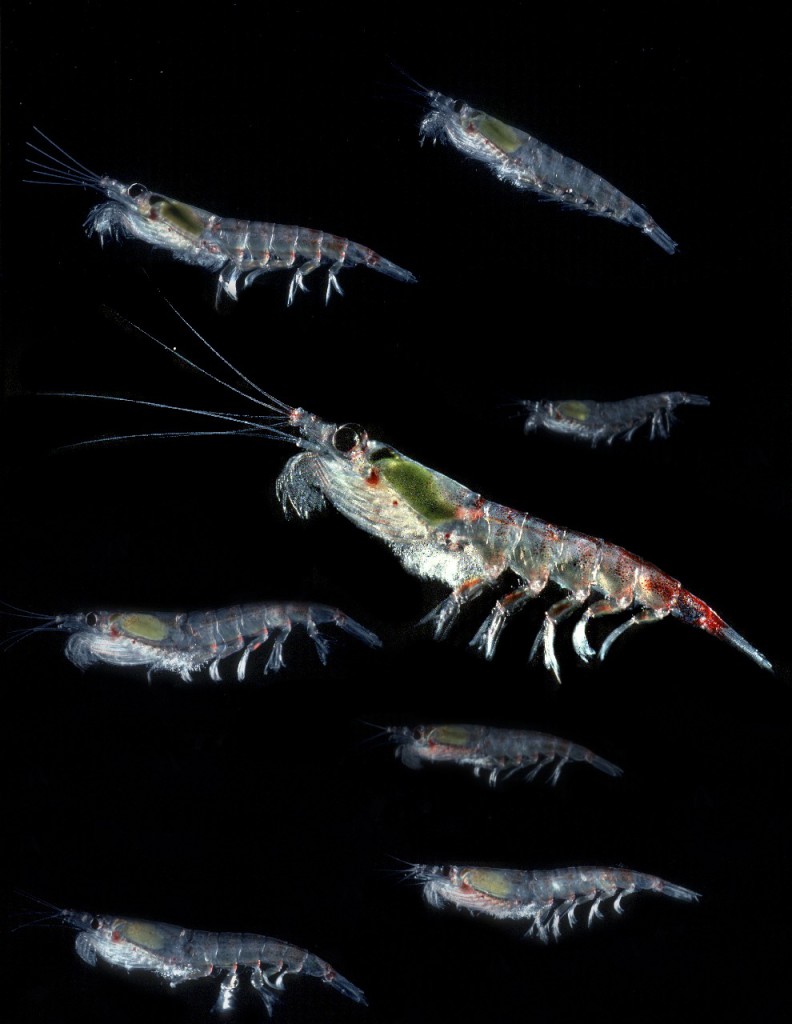Event: Understanding the objectives for krill fishing and conservation in the Scotia Sea and the Antarctic Peninsula Region
Convened by the British Antarctic Survey, ICED and WWF
WWF’s Living Planet Centre on 9th-10th June, 2014
At around 6cm long, krill might not seem all that important, but they are a major food source for Antarctic life with fish, whales, seals and penguins depending on them. They are important to people too and are fished commercially in the Southern Ocean, predominantly in the Scotia Sea and off the Antarctic Peninsula, to produce nutritional supplements (krill oil) and meal to feed farmed fish and poultry.

This image is associated with the 2005-2010 BAS science programme: DISCOVERY 2010- Integrating Southern Ocean Ecosystems into the Earth System.
The British Antarctic Survey (BAS) carries out long-term ecosystem research which underpins the conservation and management of Antarctic krill and the Southern Ocean ecosystem. With so much relying on them, it is vital that krill stocks are managed sustainably to meet the needs of both predators and the fishery. But what does this entail?
BAS, the ICED project and WWF have collaborated to bring key players in this debate together. International experts from the krill fishing industry, conservation NGOs and the scientific community will gather at the WWF’s Living Planet Centre to share their individual objectives and explore constructive ways for the three sectors to work together to ensure the responsible management of krill.
Dr Simeon Hill from the British Antarctic Survey is an expert on Southern Ocean marine food webs and is co-organising the event:
“Each of these sectors is interested in sustainability. The problem is that sustainability means different things to different sectors, depending on their objectives and expectations and how they value the benefits that the ecosystem provides. We’re bringing these sectors together so that they can begin to understand each other’s perspective and identify where they can work together constructively. We hope that this will advance our understanding of what sustainability means for each sector and ultimately help the managers of the krill fishery to develop a clear definition of sustainable”
Co-organiser Dr Rachel Cavanagh also from the British Antarctic Survey, and ICED’s Executive Officer, adds:
“By providing a structured environment in which a range of views can be heard we hope to identify common ground between groups who often don’t communicate with one other, leading to positive ways forward in ensuring effective ecosystem management.”
ICED: Integrating Climate and Ecosystem Dynamics in the Southern Ocean
ICED is an international multidisciplinary programme launched in response to the increasing need to develop integrated circumpolar analyses of Southern Ocean ecosystem.
ICED is the Southern Ocean regional programme of the International Geosphere-Biosphere Programme’s ‘IMBER’ programme (Integrated Marine Biogeochemistry and Ecosystem Research).
The ICED International Programme Office is hosted by the British Antarctic Survey and this event is a key output of a NERC International Opportunities Fund grant awarded to BAS scientists (Rachel Cavanagh, Nadine Johnston, Eugene Murphy, Simeon Hill and John Turner).
Sustainable management of krill resources in the Southern Ocean
